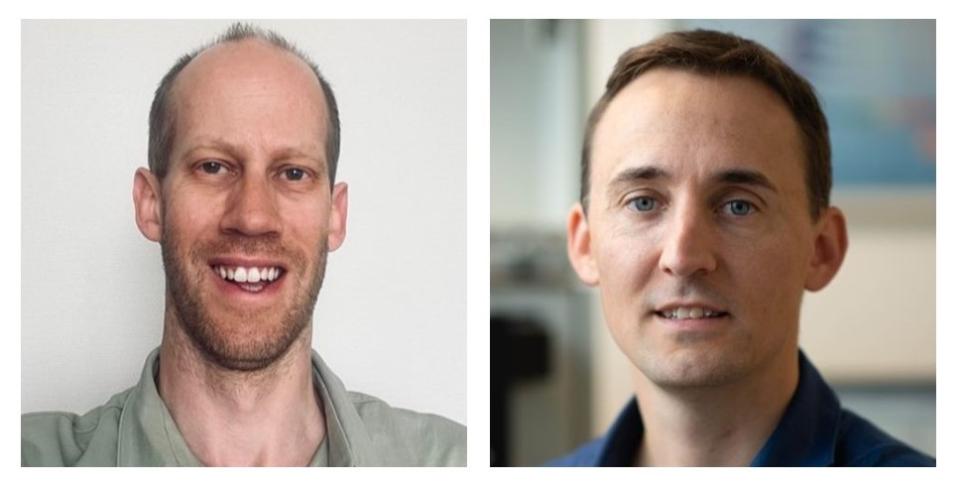Two CRIG group leaders receive a prestigious ERC Advanced Grant in 2025!
Ghent University once again confirms its top position in the European research landscape by winning six prestigious ERC Advanced Grants. Remarkably, amongst the laureates are CRIG group leaders Prof. Bruno De Geest and Prof. Martin Guilliams. All information on the six awarded laureates and their projects can be found in this news item published by Ghent University (upon which the content below is based).
MATRACs: safe and powerful cancer immunotherapy (Prof. Bruno De Geest)
Immunotherapy is a groundbreaking approach in cancer treatment. Unfortunately, only a limited number of cancer patients fully benefit from currently available immunotherapies, either due to limited effectiveness in reaching the tumor or due to immune-related side effects. Therefore, technologies that direct immune-mediated antitumor effects to the tumor microenvironment are of great interest. However, the current paradigm for tumor-targeted delivery relies on identifying specific surface markers on cancer cells. As this is unknown for many tumors, there is a need for technology that can target tumors in an antigen-agnostic manner.
In his ERC project, Prof. Bruno De Geest is developing the Marker-Agnostic Tumor-Anchoring Chimera (MATRAC) technology, which exploits universal features of the tumor microenvironment for targeted immunomodulatory therapies. MATRAC technology has the potential to enable safe, yet potent immunotherapy for a broader range of cancer patients.
Within CRIG, we are particularly proud since a prior CRIG proof-of-concept grant enabled the team to generate the first preliminary data that were used to substantiate the ERC Advanced Grant application. This CRIG grant was was awarded in 2022 (read more) to Dr. Benoit Louage, senior postdoc in the team of Prof. De Geest.
LegoLiver: (Re)constructing the liver with each cell as a building block (Prof. Martin Guilliams)
Prof. Martin Guilliams and his team from (VIB-UGent Center for Inflammation Research) receive an ERC grant for their project LegoLiver, in which they consider each liver cell as a building block. The goal is to understand how individual liver cells multiply and reorganize into a functional organ during liver regeneration and during liver growth in newborns.
The liver has an amazing ability to repair itself, but this ability has its limits. After major surgery to remove liver tumors, liver failure can occur in some patients if the liver does not repair itself quickly enough, which is fatal for one in three patients.
Guilliams’ team has discovered that the liver consists of repeating structures made up of four types of cells that work together. With this ERC grant, they will investigate in various biological models why these structures can multiply so well in newborns, but not in adults. They will use advanced techniques such as multiplexed imaging, single-cell analysis and functional screens to find new ways to promote liver regeneration.
The project itself does not focus on cancer, but can possibly have important applications for cancer patients in the future. By finding methods to accelerate liver regeneration, the researchers hope to help cancer patients who currently cannot be operated on. This would also make more liver transplants from living donors possible, because surgeons would be able to use smaller pieces of liver.
Prof. Bruno De Geest (left) and Prof. Martin Guilliams (right) - (credits to Ghent University and Ine Dehandschutter)
